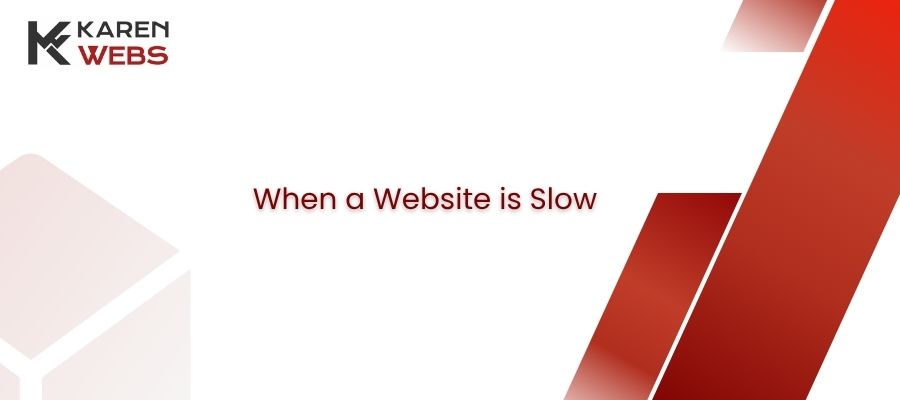Sometimes, the road is to blame for slowing down the car – and sometimes, the car is just slow no matter how perfect the road is. Sometimes, the internet connection is to blame for slowing down a website – and sometimes, the website is just slow no matter how perfect the internet connection is. In this article, I will look into some of the things that make a website load slowly even when the internet connection is near perfect and briefly discuss the solutions for each.
1. Images and Videos
To understand how images and videos can slow a website down, we first need to be aware of how websites are rendered by browsers such as Chrome, Firefox, Opera, et cetera. Websites are stored in remote computers known as servers and we use browsers to view the remotely stored websites through an internet connection. When we click a link on the browser to open a webpage, the browser sends a request for that particular webpage to the server where it is stored and sends back the data for the requested web page.
The data the browser returns from the server contains the images, video, text, and any other data needed for the requested page to be displayed by the browser. The larger the byte size of an image or a video, the more the data the browser will need to return from the server to display the requested webpage. For example, a webpage with 10 kilobytes of data will ideally load 100 times faster than a webpage with 1 megabyte of data because the browser will require more time to transport the megabyte from the server. If you own a website, you can improve the speed of your website by being keen on the byte size of the images you display on your site. As for the videos, instead of storing your videos in your website’s server, you can store them on YouTube and link them to your site to save up on the resources of your website’s server and improve the speed of your website while at it.
2. Server Location
This has everything to do with latency – which is the time it takes for a request from the browser to reach the particular server where the website is hosted in addition to the time it takes for that requested data to return back to the browser. The shorter the network distance between the computer being used to browse and the server where the particular website is stored, the shorter the latency – meaning the faster the website is going to load. As a website owner, it is advisable to go for a server provider located in the same region as your target audience, which is often challenging in some places such as Kenya where even the local hosting providers are resellers for hosting companies based abroad.
Ideal solutions for server location would be to host your website on servers that are distributed close to your target audience but servers are quite expensive hence such a solution would fit an enterprise-level outfit such as Facebook. In my personal research for server location solutions, I came across companies with servers distributed across the world that rent out their infrastructure to small-to-medium website owners, but other issues such as data security were not sufficiently addressed enough for me to recommend using such companies.
Conclusion
Sometimes, the internet is so slow that it feels as though it is taking forever for a website to load making the internet connection the obvious setback, but when the internet is fast and the website is taking long to respond, only the very patient among us are going to tolerate the slow-loading website. If you own a website, the key is in making your web pages as lightweight as acceptably possible by compressing your large images and saving up on your website’s server resources by outsourcing your video storage to YouTube. Where available, host your website on a server that is located close to your target audience to boost the response rate and your site’s overall speed.
If you desire your website improved for performance or professionally developed for performance, Karen Webs has got you covered – please reach us via the contact information provided above and we will be happy to add value to your online investments.

